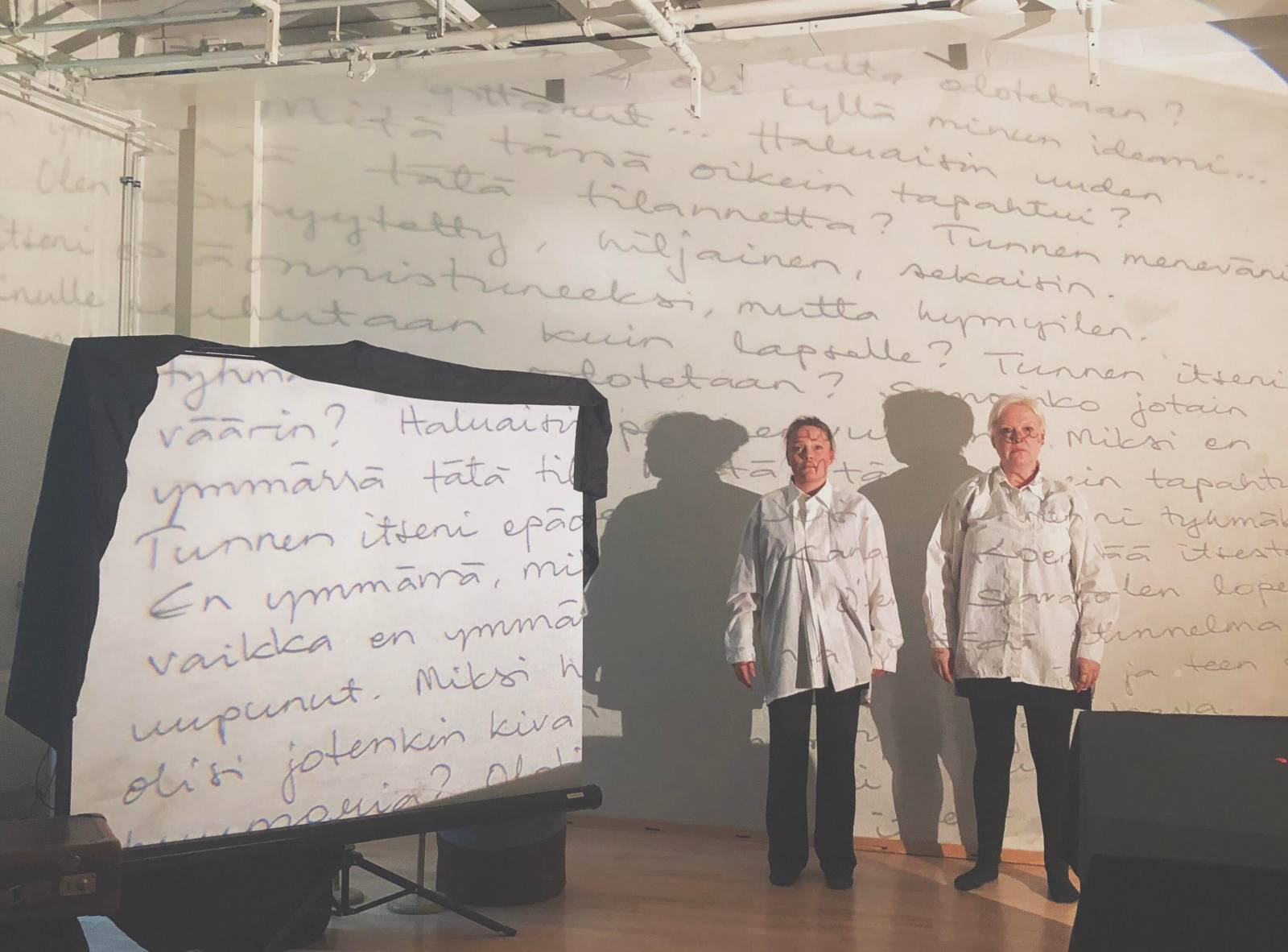How does a positive turn into a negative in a university context? What happens to trust, inclusion, cooperation, thanksgiving, and well-being trust? What makes interaction situations sticky and troublesome? In cooperation with the ‘The language of manipulation: Working life as a performance’ -project, which takes place in the field of art research, we organized an event where these questions were examined first via puppetry and object theater, and finally in workshops by students and staff from Tampere University.
Cultural co-op Kiito’s performance “Showy life” takes place in a community whose members try to cope with various situations as required by current practices. The members of the community were represented by work gloves, which were handled by two researchers especially interested in manipulation. In contrast to the rather toxic activity, the inner experience of the characters emerged as silent handwritten texts collected from real life.
The performance aroused a lot of emotions and thoughts in the audience – both during the performance and in the workshops. The discussion was sparked, among other things, by the authenticity of various acts of interaction. The inauthenticity of these acts – such as praise and excessive confidence without knowledge of the real side of things, as well as the ritualization of thanksgiving – was seen as a key factor in the transformation of actions that were initially considered positive into toxic ones. If for one reason or another, for example, a compliment or a thank you does not seem genuine to the recipient, it can also be difficult to be taken seriously.
Another key point made in the workshops concerned the importance of slowness in the often very complex interaction processes involved in project work. We are different as interactors and data processors, so for example the often fast-paced decision-making situations that take place in meeting situations may exclude some of the participants from decision-making. Slowing down the decisions-making processes in such a way that, in addition to direct commenting, the participants were offered the opportunity for written participation was seen as one potential way to enable wider participation. In addition, among other things, apparent inclusion was criticized as a university practice in which influencing things does not seem like a real possibility. At university, for example, when writing together, there isn’t much time for people to get to know each other. In this case, writing together remains very technical in nature, and a very deep understanding of the subject or a connection with the co-authors may not be created. In this case, many questions related to power, for example, remain undiscussed and unresolved.
The working group of the performance: Kati Andrianov, Heidi Kotila & Jarkko Suhonen
More about the research project: https://research.tuni.fi/t7-fi/?fbclid=IwAR0O9C7lMx8R8ye2ZWU1wNLeLquuBT25fuC3tUX6l9rC09WVOUAOIu-9Ns8 and Cultural CO-OP: https://kiito.fi/english/

